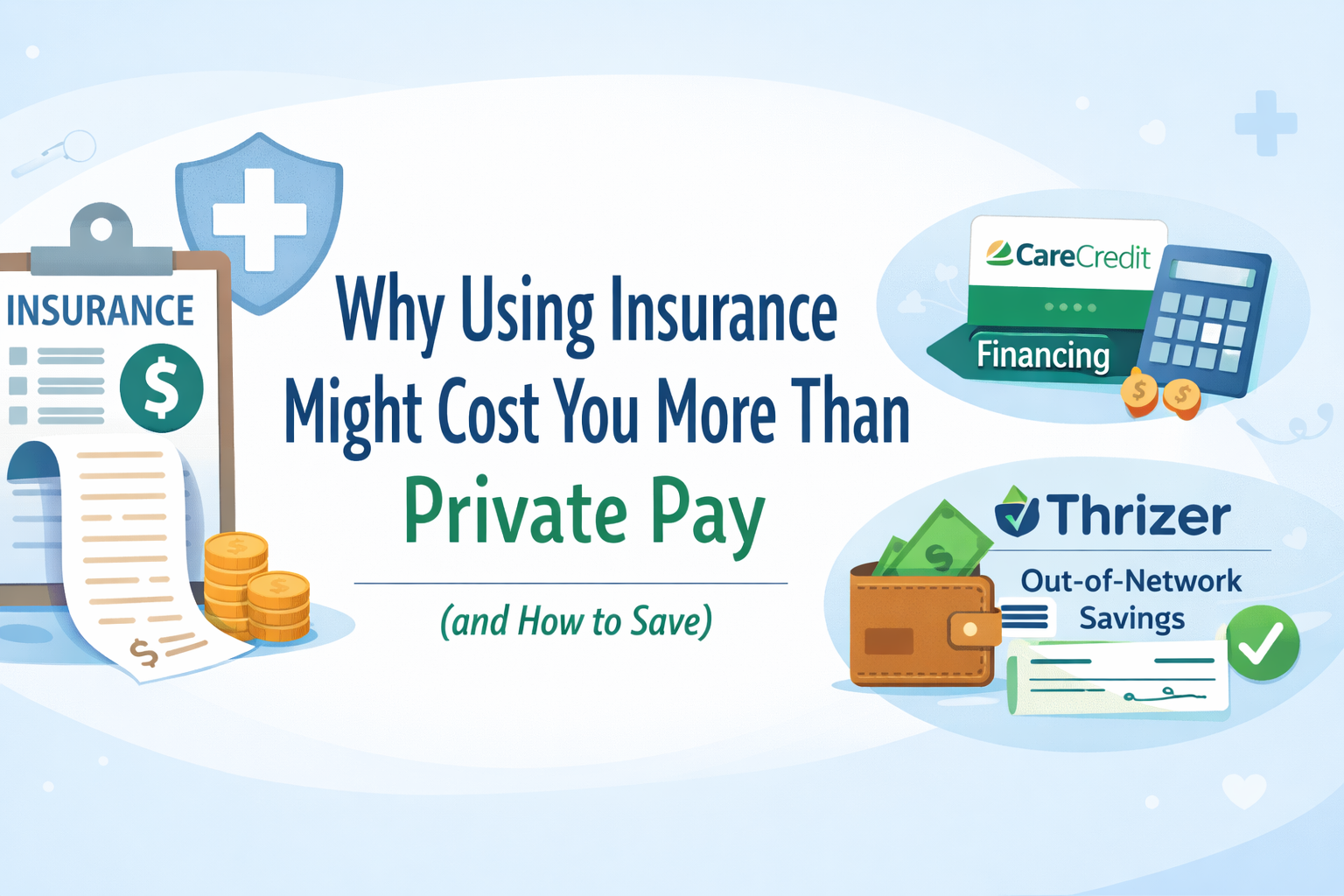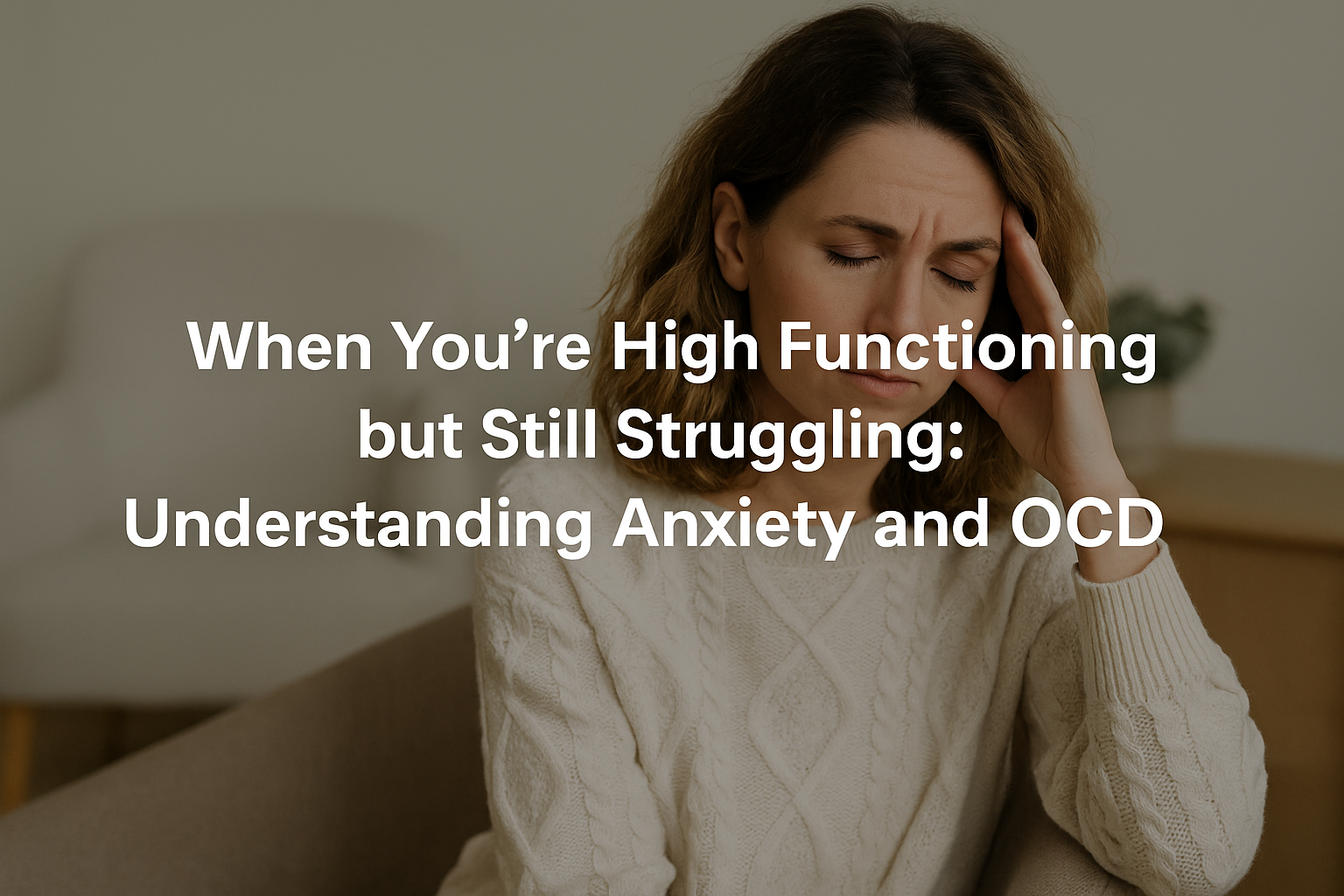Just Stop Thinking That Way: The Harm of Misunderstanding OCD and OCPD

Just Stop Thinking That Way: The Harm of Misunderstanding OCD and OCPD
By Emily Pierce, MS LPCA, LCMHCA
Imagine waking up every day with the gnawing sense that something—everything—is wrong. That your thoughts are not your own, that your actions are never enough, and that the people around you don’t understand you—maybe even think you’re choosing to feel this way.
This is the lived experience for many individuals struggling with Obsessive-Compulsive Disorder (OCD) or Obsessive-Compulsive Personality Disorder (OCPD). It is not something a person can turn on or off like a light switch. It is not a quirk or a phase or a personality type. And when family members or support systems misunderstand the depth and complexity of these disorders, the damage can be profound.
Let’s talk about what OCD and OCPD really feel like—and what real treatment can look like.
OCD and OCPD: The Prison of the Mind
OCD is not about being “a little OCD” because you like your desk tidy. It’s a mental health disorder characterized by unwanted, intrusive thoughts (obsessions) that drive compulsive behaviors meant to reduce distress. These behaviors are not pleasurable or optional. They are exhausting. They are often shame-filled. And they can consume hours of a person's day.
OCPD, though often confused with OCD, is a personality disorder rooted in rigidity, perfectionism, and control. The suffering comes not from the thoughts being alien or unwanted, but from a deeply ingrained belief that the rules must be followed just so, or else something terrible may happen—or their identity may collapse.
For both conditions, the internal experience can be brutal.
It’s like living in a mental prison where every choice must be examined, questioned, and reexamined. The stakes feel unbearably high. The doubt never ends. The guilt is constant. For many, even seeking treatment is accompanied by fears that they’re doing therapy wrong.
The Pain of Misunderstanding
Imagine enduring this inner torment and finally mustering the courage to tell your parent, your partner, or your sibling, only to hear:
- “You’re overreacting.”
- “That’s just your OCD talking.”
- “You’re being too much.”
- “Why don’t you just stop thinking that?”
These are not just invalidating comments—they’re deeply harmful.
Telling someone that everything they do is “just their OCD” erases their humanity. It becomes impossible for them to know what’s real, what’s them, and what’s their disorder. It reinforces the very doubt and confusion that OCD feeds on. It also fails to distinguish between compulsions (which deserve gentle confrontation) and core values or personality traits (which need validation and understanding).
What Real OCD Treatment Looks Like
Exposure and Response Prevention (ERP) is the gold standard for OCD treatment. But not all ERP is created equal.
At its core, ERP involves gradually and systematically exposing a person to their fears or triggers without engaging in compulsive behaviors, so their brain can learn that they are safe—even without doing the thing OCD demands. It is structured, evidence-based, and guided by compassion.
But some modern implementations—especially certain high-volume, app-based models—have watered down or even distorted ERP into something rigid and robotic. In these cases:
- Clients are often thrown into exposures without adequate rapport or psychoeducation.
- The treatment becomes overly focused on behavior, without honoring the underlying emotional pain.
- There is little room for nuance, complexity, or co-occurring conditions like OCPD, trauma, or relational wounds.
This “trending” version of ERP can leave people feeling dismissed, retraumatized, or punished. It reinforces the idea that their suffering must be confronted aggressively or not at all.
This is not ethical ERP. It is mechanical. It is depersonalized. And for those with OCPD or trauma histories, it can make things worse.
What Ethical, Humane ERP Looks Like
At Therapy Haven and Consulting, LLC, we believe in therapy that honors the person—not just the protocol.
Humane ERP includes:
- Consent and collaboration. You are not forced into exposures without understanding or agreement.
- Pace and personalization. Your treatment plan is tailored to your lived experience—not a checklist.
- Validation and support. You are not just a diagnosis. You are a whole person.
- Integrated care. We address co-occurring issues like perfectionism, trauma, family dynamics, and spiritual identity alongside ERP.
We also work with families to understand how to support—not enable—their loved one’s healing journey. This includes learning what not to say, how to avoid overidentifying everything as “OCD,” and how to hold space for both discomfort and dignity.
There Is Hope
If you or someone you love feels like they’re trapped in a relentless loop of doubt, guilt, and compulsive behaviors… know this:
You are not alone. You are not broken. And you are not too much.
Healing is possible—but it requires more than a diagnosis and a worksheet. It requires compassionate expertise, individualized care, and a safe
Therapeutic relationship.
If you are ready to explore OCD or OCPD treatment that honors your story and centers your humanity, we are here to help.
Therapy Haven and Consulting, LLC
Offering specialized, ethical treatment for OCD, OCPD, and related challenges.
📍 In-person
📞 Contact us to schedule a consultation or learn more: Therapyhaven.org or 803-373-1240
You don’t have to keep suffering in silence. There is a way out—and you don’t have to do it alone.


